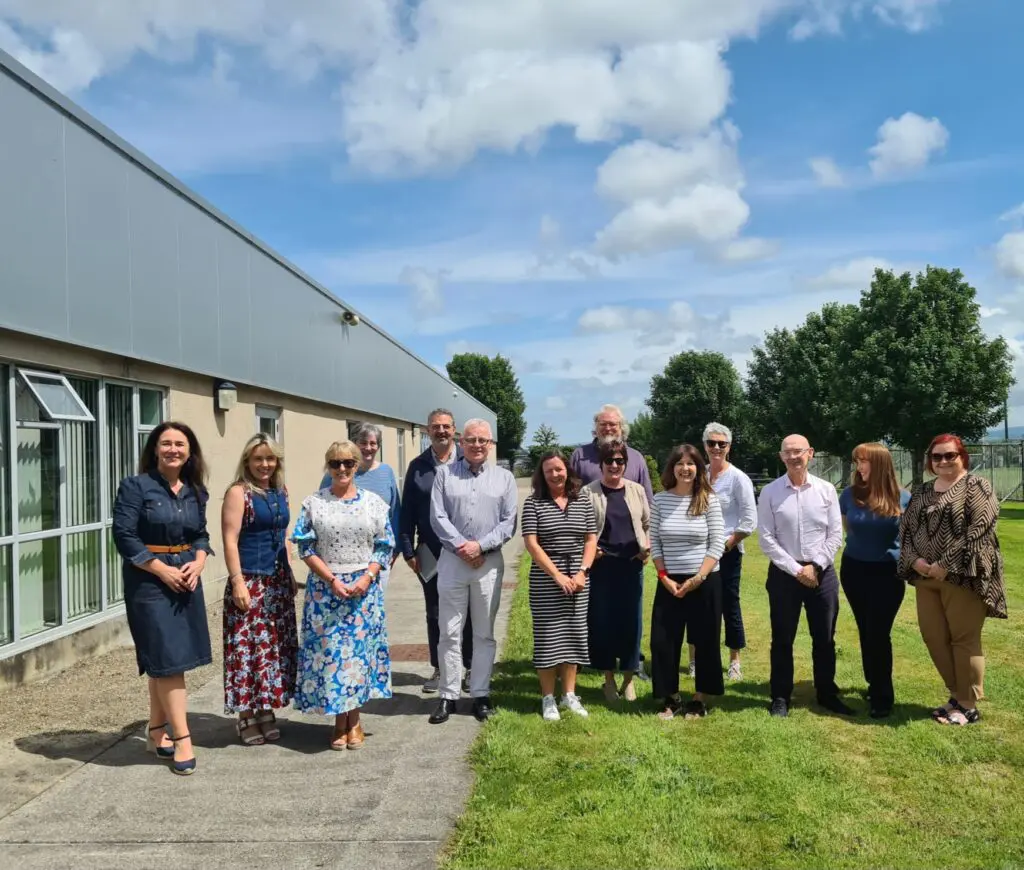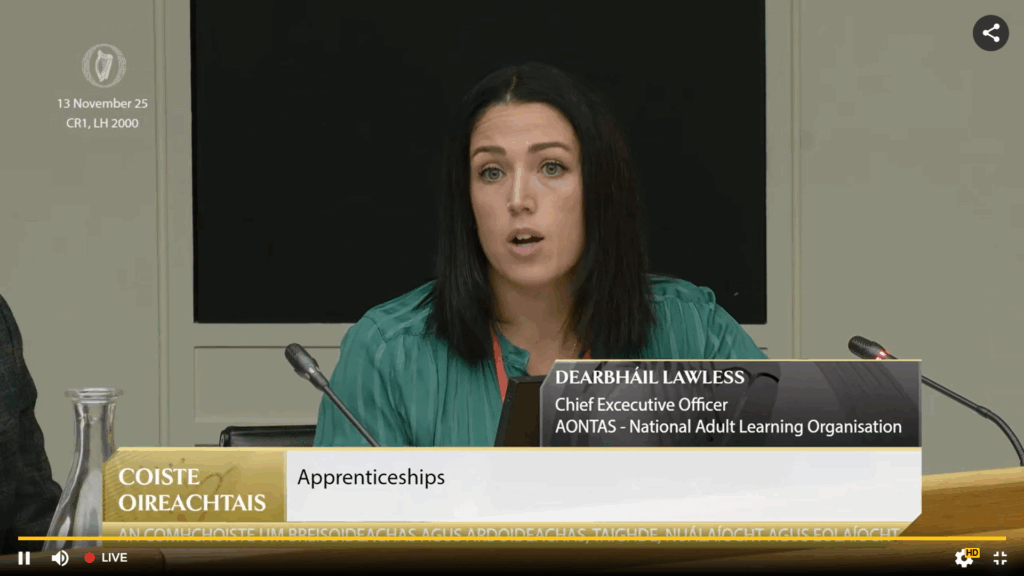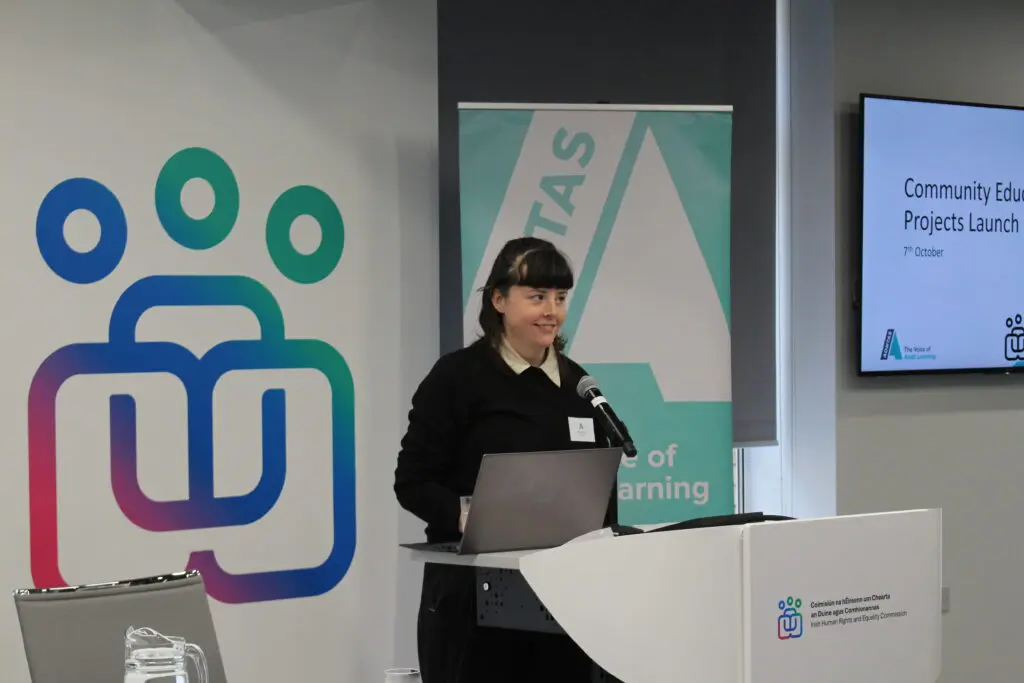During the shift to remote learning, to maintain learning connectivity issues need to be addressed. We know a minimum of three things are needed: access to IT device; reliable and unlimited WiFi/internet; and digital training/skills. While great efforts have been made regarding access to IT devices, especially through the MAED Fund and HEI and FET laptop procurement scheme, learner access to devices and reliable internet in the FET and community education sector still remains a challenge. A change to a previous commitment by mobile data providers (TeleCos) to offer unlimited mobile data to remote learners is hugely concerning. Access to the internet is an essential element to online learning and is therefore a priority. A new commitment by TeleCos must be reinstated and extended to include a guarantee of unlimited data options to all mobile data option plans.
Background to the Unlimited Mobile Data Imitative
At the outset of the pandemic, there were a number of emergency support measures put into place that ensured educational access remained a priority across the adult learning sector. Showcasing national solidarity in the fight against COVID-19 and its societal impact, these measures crossed both the public and private sectors. Among these measures was an announcement from Ibec in April 2020 that TeleCos would offer affordable unlimited data packages to anyone who relied on mobile data to complete online learning.
This offer meant that were no penalties for learners to move plans, and if learners were already on a set plan, they could temporarily change plans without penalty. While there were some limitations on pay-as-you-go plans, most providers offered both prepay and pay-as-you-go plan options to individuals seeking assistance. The offer, which was extended to August 2020, covered the initial period of Level 5 restrictions and beyond, helping learners who enrolled in courses during the 2019/20 academic year, finish the year using the WiFi provided by their mobile device if necessary. If for any reason, TeleCos did not support learners through this process, there was an escalation procedure for learners to seek assistance. Learners could contact the Commission for Communications Regulations (ComReg), to seek redress.
In promoting the plan, a number of educational bodies and learner organisations worked collaboratively to share this information with learners. Together, AONTAS and NALA, with the support of ETBI and HEANet developed a guide specifically for learners in the FET and Community Education sector to help them access unlimited mobile data options. The resource, in the form of a graphic, provided learners with a three-step process for requesting unlimited mobile data from their provider and offered access to the free OneStepUp phoneline to support learners for needed further assistance. Demonstrating the value of the graphic, by the close of the year, social media engagement with the graphic reached 37,281, with an additional 48 learners supported through the OneStepUp phoneline.
What has changed?
As national restrictions loosened, so did these commitments. While TeleCos issued assurances to ComReg that offers would remain informally in place and individual cases would be handled appropriately, formal guarantees were not maintained. This became evident most clearly in January and February when calls to the OneStepUp phoneline and emails to AONTAS revealed TeleCos were no longer providing learners with viable, penalty free unlimited mobile options.
This change, furthermore, occurred in midst of the strictest and longest period of COVID-19 restrictions the country has experienced to date. Unlike learners enrolled from the previous academic year, the 2020/21 learner cohort may spend their entire year learning online, yet one of the vital supports that had previously provided them with access has now been withdrawn.
What is the impact of this change?
We know learners, particularly vulnerable learners, rely on mobile data to continue their learning. According to the COVID-19 National FET Learner Forum Report, of the 723 learners who responded to the online survey, 13.6% relied on mobile devices to complete their online assignments and coursework. This number was even higher for particular learner populations such as Travellers and Roma, where reliance on mobile data to complete course work increased to 68%. Additionally, Traveller and Roma learners, along with community education learners (67%) and learners in direct provision (50%) were more likely to identify phone communication as the primary mode of communication between them and their tutor. By comparison to the overall average remained at 44%. A similar dependence was notable among learners at the lower levels of the National Framework of Qualifications, where reliance on mobile phones to complete course assignment decreased according to the course level learners were enrolled: 32% on Levels 1-3, 27% on Level 4 courses, and 6% on Level 5 courses. One learner even reported, “I have to share my daughter’s phone to complete my work.” For community education learners, the reliance on mobile devices was further evidenced through the Community Education Learner Focus Group and Survey findings report, that found that the majority of participants were using a mobile device to complete their coursework.
This evidence is of course only captured from learners who were able to engage this virtual setting. Of significant concern are the learners whose voices and experiences are not reflected in these numbers – those who could not share their need for mobile data perhaps because they did not have access to it. We know from tutor and facilitator feedback captured in reports such as the Community Education Practitioner Focus Group that a concerning number of learners are left to complete their work, including assessments, on mobile devices. Additionally, other learners, who have access to a laptop or iPad, may in fact rely on their mobile device to use as a hotspot to cast WiFi. One community education provider, who was supporting learners in recovery, described the importance of mobile connections, explaining it was only through the phone that this learner was able to participate in course activities – activities that were essential to this learner overall mental health and wellbeing.
Furthermore, there is a concerning trend in enrolment figures from 2019 to 2020 indicating that barriers to education are having a more acute impact on learners at lower level courses on the National Framework of Qualifications. According to data from QQI published in the Barriers to Education Working Paper released by the Mitigating Educational Disadvantage Working Group, compared to 2019, in 2020 there was an average reduction of 50% in QQI Major Awards attainment at NFQ level 1-4. This compares to an average decrease of 17% for QQI levels 5 and 6. Similarly, compared to 2019, in 2020 there has been a decrease in QQI Minor Awards at Level 4, and Level 5 of 51%, and 28%, respectively. Data is also emerging that there has been a 25% reduction in participation rates of marginalised FET learners in 2020 compared to 2019.
What action should be taken?
If we are truly committed to ensuring all learners, particularly the most vulnerable learner cohorts, access to unlimited mobile data must be seen as essential. To ensure learners can access this essential service, a recommitment to the promises made by TeleCos in the first phase of the lockdown, must be reissued. In this new commitment TeleCos should extend the guarantee of unlimited data options to all mobile data options, including pay-as-you-go plans, especially since a number of prepay plans require a contract commitment that many learners under 18 cannot access. Since this commitment will require cooperation among private TeleCos, we request that the government work collaboratively with TeleCos to have this commitment immediately reinstated. Such an action would help ensure we mitigate the deepening of the potential for further educational disadvantage during this already difficult period. This essential element for remote learning – access to the internet, is a priority. A new commitment by TeleCos must be reinstated and extended to include a guarantee of unlimited data options to all mobile data option plans.






